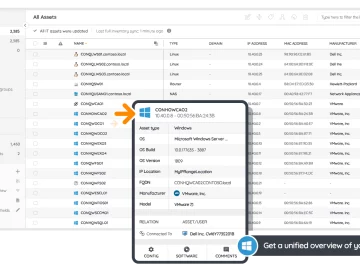
Alphabet Inc, the parent company of Google is likely to acquire a cybersecurity startup Wiz for USD $23 billion and the deal is said to be carried all in cash by September this year. Interestingly, the Israel based company is being acquired by the technology giant after Joe Biden announced that all the foreign acquisition and merger deals will be heavily scrutinized by the US Regulators if they suspect any threat to National Security as the White House is taking a serious stand on the deals involving firms from China, Israel, Iran and some countries from Middle East.
Wiz acquisition by Alphabet was speculated just after the media announcement that the Google’s parent company will be taking over HubSpot, the marketing software business.
It is an age-old trend that new startups or smaller companies are bought by large companies to cut down competition and to gain wide spread market share.
Likewise, Google wants to use the tech of Wiz to stay on par in business with respect to digital security, just to stay on top in protecting Kubernetes and offering vulnerability management after it acquired Mandiant in the year 2022 for $6 billion appx.
Meanwhile, all high-risk accounts of Google can avail the passkey protection to secure their accounts in addition to the physical security keys like Yubikey to help journalists, politicians and staff, and human rights workers against state funded attacks.
But to enroll for this service, the user needs to log-on to Advanced Protection Program (APP) to gain utmost defense against phishing, malware, and other data stealing means.
Furthermore, the internet juggernaut is also going to release more details about its facial recognition tech used to secure corporate campuses and already Security and Resilience Service team in Kirkland, Washington is in the testing process to secure users, products and the location that they are being used or shared.
Currently, a clarification given by the web search giant emphasis on the fact that the FR data is used on an immediate note and is never stored in any format on its servers, thus watering down the concerns raised by privacy advocates.
Ad



